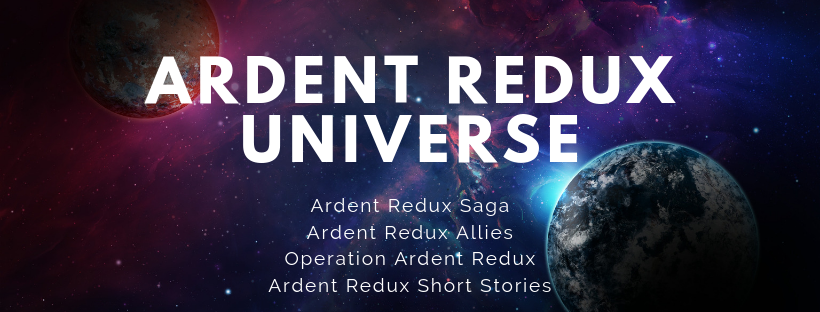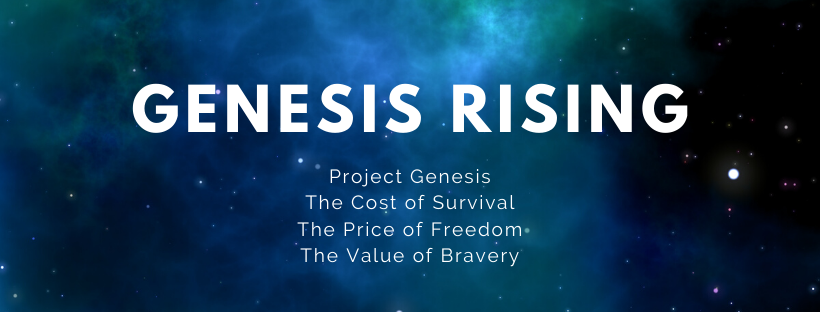I love space opera. I love to read it. I love to watch it. Most of all, I love to write it. If you’ve ever heard me talk about my Ardent Redux Universe, then I’m sure you already know about my obsession.
For me, the genre has it all. But it seems as though many people don’t know that much about space opera. In fact, when introducing myself I get a lot of questions like: “What is space opera?”
I could go into a list of the best space opera books or the best space opera series, but there are plenty of those out there. Plus, the things I love may not be the things you love. And that’s okay.
Instead, I’d rather talk about what I think makes the space opera genre so great.
These days I don’t have as much time as I would like to sit down and read or watch television. When I do make the time to let myself soak up some good sci-fi, I want to really enjoy myself so there are a few things I look for. But before I get into that, let’s go back to that earlier question…
What is Space Opera?
Technically speaking, space opera is a science fiction subgenre. Some people will describe it as soap operas in outer space, but it’s really so much more.
Space opera is epic. It has relatable, amazing characters. There’s lots of space, of course. It’s about how these characters, who battle with their inner demons and cosmic villains, take on problems that they can’t possibly solve on their own. It’s about drama and comradery. It’s about struggle and perseverance. It’s about grabbing the problem by the throat, no matter the size, staring it in the eye and saying, “Not today,” even when they know there might not be a tomorrow.
At least that’s what it feels like to me. It’s empowering.
Heck, I get pumped up just thinking about it sometimes. I’m a very visual thinker. Scenes and images play out in my head constantly. I’ve even compared myself to J.D. from the television show Scrubs and his constant disruptive daydreams. So, I guess it should be no surprise to me that an epic space battle was going on in my head as I wrote that description.
What Makes Good Space Opera
I’m not very hard to please when it comes to science fiction and space opera or science fiction in general. Don’t get me wrong, there are books, shows, and movies I’ve absolutely hated. I’m not going to name those here because other people could very well love them, and this isn’t about creating rifts. This is about bringing people together to appreciate this incredible genre.
To me, at least, space opera must absolutely have interesting characters and space travel. I love scifi books that focus on the relationship of the crew on a ship. I was blessed with an incredible and supportive family, but many people weren’t so the found family trope is one of my favorites. I also really enjoy when characters weave in and out of a story across time and space. That weird quirky guy from the first book in the series may continue to find himself in the wrong place at the wrong time in later books and is always in need of a rescue.
I also really love when a sci-fi author incorporates alien races in new and interesting ways. I feel that meeting species unlike ourselves and learning how to overcome differences and misunderstandings (maybe not in a hostile alien invasion where they want to kill off everyone on Earth … but that’s an entirely different genre) and work together toward a common goal is a great trope.
Another thing I really enjoy is how other authors imagine an alien planet and the flora and fauna. My mind constantly wanders to the possibility of what life may evolve to be across the galaxy and beyond. I am particularly interested in planets and life that aren’t restricted to what we know is possible on Earth. There’s so much possibility across the stars, why limit your thinking to one type of planet?
A science fiction book series or television series that has massive story arcs with political drama, interstellar war, aliens, genetically engineered humans, incredible spaceships, space stations, artificial intelligences, galactic empires, starship battles, and even a little romance here and there are right up my ally. For me, a single space opera novel or a movie almost feels like it’s not enough. I want a lot of it.
There are other things that an author may work into their space opera stories such as time traveling, alternate history, and even fantasy elements. I generally have no problem with those things as long as they’re done well. I have a really hard time reading books with time travel when all I can see are the paradoxes that would result. But as long as all the good bits are there and worth reading, I can accept a little paradox here and there.
Ultimately, I could talk about space opera and space exploration for months on end. I think that’s a big part of why I enjoy writing it so much.
JLS


